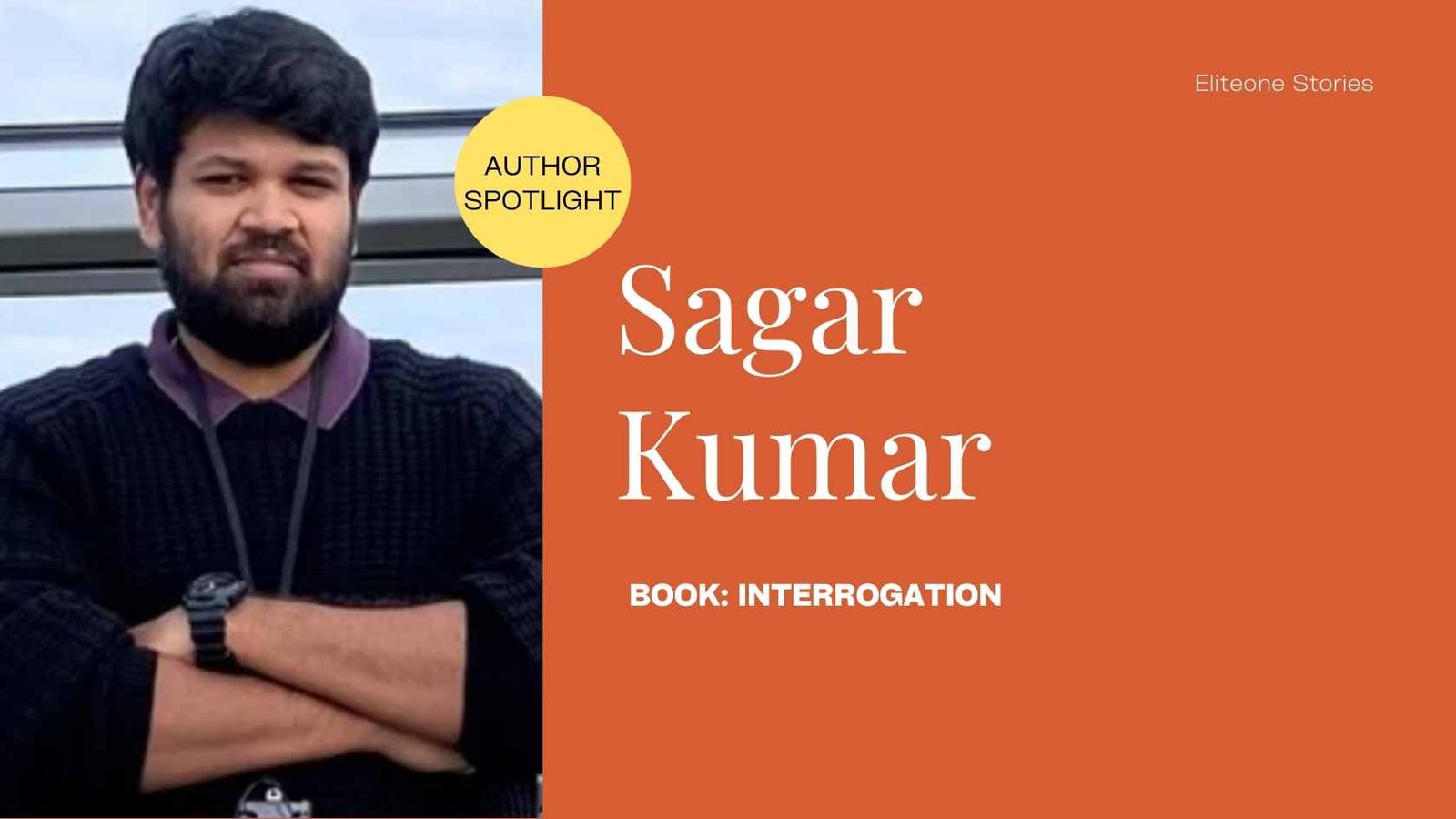Sagar Kumar is a Bangalore-based writer and filmmaker originally from Shimoga, Karnataka. With a background in engineering and years of experience as an iOS developer, he transitioned into storytelling to pursue his passion for truth and human narratives. Known for his critically acclaimed debut film Anamadheya Ashok Kumar, Sagar brings the same emotional depth and social awareness to his literary work. Interrogation marks his powerful entry into fiction, reflecting his commitment to amplifying marginalized voices and exploring the complexities of justice, identity, and resilience.
Eliteone Stories: Interrogation is based on a true incident. What was the moment or trigger that compelled you to turn this story into a novel?
Sagar Kumar: The turning point was witnessing how a single night at Madiwala Police Station shattered a life—not through guilt, but through power and silence. I felt compelled to tell the story, not just to expose the truth, but to give voice to those who were never heard.
Eliteone Stories: The novel explores themes of power, silence, and identity. How did you approach balancing emotional depth with social commentary?
Sagar Kumar: I let the characters carry the weight of both—emotion and commentary. Instead of preaching, I focused on their lived experiences, their silences, their breaking points. The social critique emerged naturally through their struggles. My aim was to make readers feel first, and then think.
Eliteone Stories: You’ve worked in both film and literature. How does your filmmaking background influence your writing style or narrative structure?
Sagar Kumar: Storytelling is like sailing on a paper boat. It’s delicate, uncertain, and easily torn by the weight of truth. But if you fold it right—with care, balance, and heart—it floats. My background in film helped me shape the boat; literature taught me how to let it drift.
Eliteone Stories: What challenges did you face while fictionalizing a real-life incident, especially one so emotionally and politically charged?
Sagar Kumar: The hardest part was being honest without being exploitative. This was a real incident with real people, and fictionalizing it meant walking a fine line—guarding identities, honoring unspoken pain, and still conveying the emotional and political gravity of what happened. Finding that balance between empathy and storytelling was the true challenge.
Eliteone Stories: The protagonist remains unnamed. Was that a conscious narrative choice, and what does anonymity represent in the story?
Sagar Kumar: Though the protagonist is given a name, it’s a fictitious one—intentionally chosen to divert personal attention and highlight a larger truth. It reflects how people like him often disappear into systems: erased, unheard, and faceless. This kind of anonymity isn’t just personal; it’s political. It stands for all those who have been silenced, misjudged, or forgotten.
Eliteone Stories: In a time where sensationalism often dominates media, your storytelling is quiet, introspective, and restrained. Why did you choose this tone?
Sagar Kumar: I chose a quiet, introspective tone because this story felt too important to yell about. Sometimes the loudest truths are spoken softly. I wanted readers to sit with the characters’ pain and confusion, not be distracted by drama. It felt like the most honest way to tell their story.
Eliteone Stories: Michael Lewis’s quote on storytelling giving “powers you didn’t have” resonates in your work. What power did this story give you?
Sagar Kumar: This story gave me the power to bring hidden realities into light. It reminded me that storytelling isn’t just about words—it’s about creating space for unheard voices to be seen and felt.
Eliteone Stories: What kind of research or emotional preparation did you undergo to authentically represent such a traumatic experience?
Sagar Kumar: My main focus was protecting everyone’s identities while remaining true to the story. It was important to me to tell it honestly and respectfully, without crossing any personal boundaries. It was about holding space for trauma honestly while respecting the real people behind the story.
Eliteone Stories: How do you see Interrogation fitting into the broader conversation around justice and human rights in India today?
Sagar Kumar: Interrogation is a small but important part of a larger conversation about justice and human rights in India. It highlights how power dynamics and systemic bias can distort truth and harm innocent lives. By telling this story, I hope to contribute to awareness and empathy, and remind readers that justice isn’t just legal—it’s deeply human.
Eliteone Stories: What’s next for you—another novel, a film, or something else?
Sagar Kumar: Not sure, working on it!
Order Book: https://www.amazon.in/dp/9370020489



